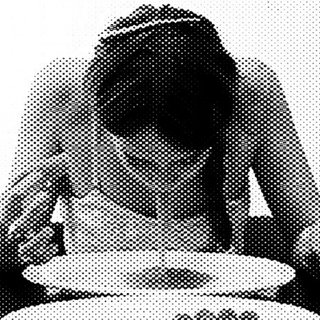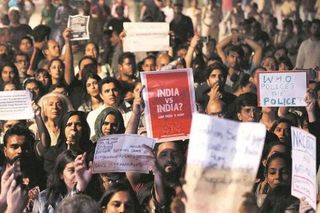
Mental Health Professionals Must Take an Active Role in Safeguarding Indian Democracy
Research has proven that marginalization causes and exacerbates mental health concerns for minorities.

“I wish I could separate trauma from politics, but as long as we continue to live in denial and treat only trauma while ignoring its origins, we are bound to fail .” — Bessel Van der Kolk
The central government under the aegis of Prime Minister Narendra Modi is steadily carving the pathway that will lead Indian democracy into the grips of fascism. Whether it be the revocation of the special status of Jammu and Kashmir, the passing of the Transgender Persons (Protection of Rights) Bill, or the more recent Citizenship (Amendment) Act, the government has made it clear it has no qualms about trampling over the rights of minorities.
Despite state-sanctioned violence against dissenters, the nation is rife with protests and media is replete with information about political unrest. But an important dialogue is missing.
When systemic discrimination is ordained by the state, what implications does it have for the mental health of the communities that are being targeted? While their most basic rights and liberties are being snatched away, what steps are being taken to address the anger, disbelief, and hopelessness of a disenfranchised citizenry? Amid the rancor of protest, why are the voices of mental health professionals so faint and so few, when research has proven time and again that stigma and marginalization causes and exacerbates mental health concerns for minorities?
Related on The Swaddle:
We Need to Reframe Mental Health as a Social Justice Issue, Not a Personal Problem
Therapists and mental health professionals are renowned for taking a ‘neutral’ stance and for relegating the field of mental health to working with individuals and their concerns. But under a regime intent on creating a nexus of laws that are oppressive, discriminatory, and inconsistent with the lived realities of people, is one-on-one work really enough? If we claim to care about the wellbeing of the communities we work with, we cannot afford to remain silent now.
Mental health professionals have “power/knowledge,” a term that French philosopher Michel Foucault coined to imply that power has its basis in knowledge and that those in power can reproduce knowledge to shape it in accordance with their needs. Though even a cursory reading of the history of psychiatry (or Foucault, for that matter) will provide one with many instances of misuse and abuse of power/knowledge by the mental health community, there have been ways in which it has influenced the social fabric in subtle but beneficial ways.
Related on The Swaddle:
India’s Internet Shutdown in J&K Is Now the Longest Imposed in Any Democracy
In Brown vs. Board of Education (1952-1954), a landmark court case that led to the overturning of school segregation in the U.S., African-American psychologists Kenneth and Mamie Clark provided testimony. Their “doll-test” proved racial segregation’s negative effects on black children, who were aware of racial differences as young as age 3, preferred to play with white dolls, and assigned negative traits to their black identities.
Sex researchers William H. Masters and Virginia E. Johnson, in their seminal 1966 work, The Human Sexual Response, helped created a radical shift in the manner in which women’s sexuality was viewed by the public. It was revolutionary at the time to study the female sexual response cycle in detail and learn that women desired sex. Feminists embraced the findings that indicated that women were sexually capable, autonomous beings and sexuality became an important consideration for the feminist movement in the 1970s.
In 1973, in response to the gay liberation movements, the American Psychological Association made history by deciding that homosexuality was not a mental illness. This was the “beginning of the end of organized medicine’s official participation in the social stigmatization of homosexuality” and helped shift the public’s opinion on queerness. In India, during the movement against Section 377 of the Indian Penal Code that criminalized homosexuality, mental health professionals petitioned the Supreme Court both in 2013 and in 2018.
Recently, too, there has been a trickle of discourse engaging with the impact of sociopolitical climate on the mental health of marginalized communities. The regressive Transgender Rights bill has been condemned by psychologists on the grounds that it would be a cause for greater social exclusion and psychological distress for trans people. Articles written on mental health concerns faced by individuals in the Kashmir valley find overly high rates of post-traumatic stress syndrome, depression, anxiety, and drug abuse, with limited access to healthcare services following the strike down of Article 370. After the brutal violence against students across universities, a list of therapists willing to volunteer their time to affected individuals is being circulated.
Providing clients with mental healthcare services is always about power and who has it. It is inherently political. When we charge clients on the basis of their capacity to pay, condemn caste with Dalit clients, ally with women in abusive relationships, affirm queer identities, or provide teenagers with information about safe abortions — we are already engaging in advocacy by fighting systemic oppression.
Now, it is time to take the battle outside the therapy room.
Farah Maneckshaw is an independent journalist and psychologist who works at Ummeed Child Development Center. She has done her Masters in Clinical Psychology from the Tata Institute of Social Sciences.
Related


Dopamine Fasting Is Gaining Fans — Without Much Basis in Science
